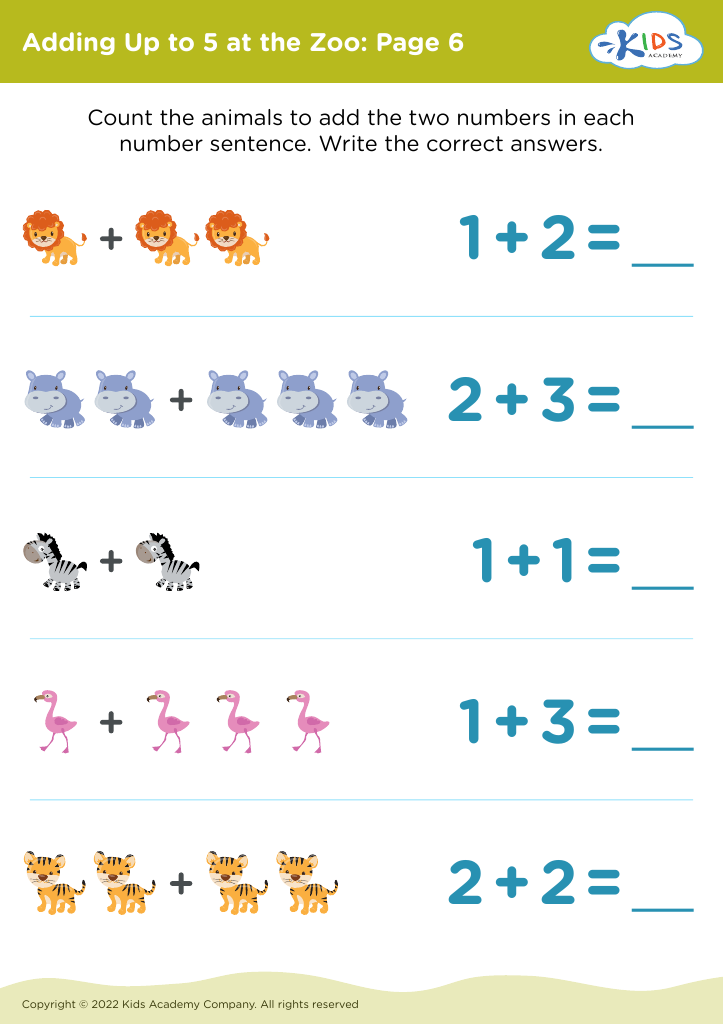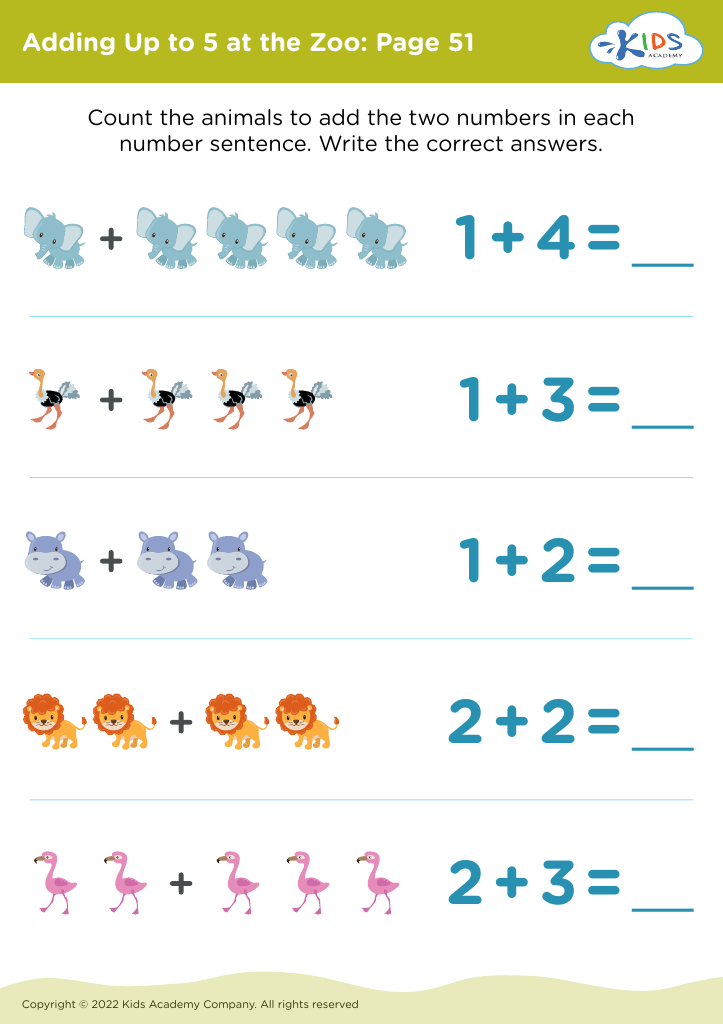Improves counting skills Math Worksheets for Ages 4-5
5 filtered results
-
From - To
Enhance your child's early math abilities with our "Improves Counting Skills" Math Worksheets tailored for ages 4-5. These engaging and colorful worksheets are designed to make learning fun while helping young learners practice fundamental counting skills. Each activity encourages hands-on learning, promoting number recognition and the ability to count confidently. With various themes and interactive exercises, children will enjoy counting objects, completing sequences, and solving practical math problems. Our worksheets foster a love for numbers and lay a strong foundation in math, ensuring your little ones are well-prepared for future challenges. Explore our collection and watch their counting skills flourish!
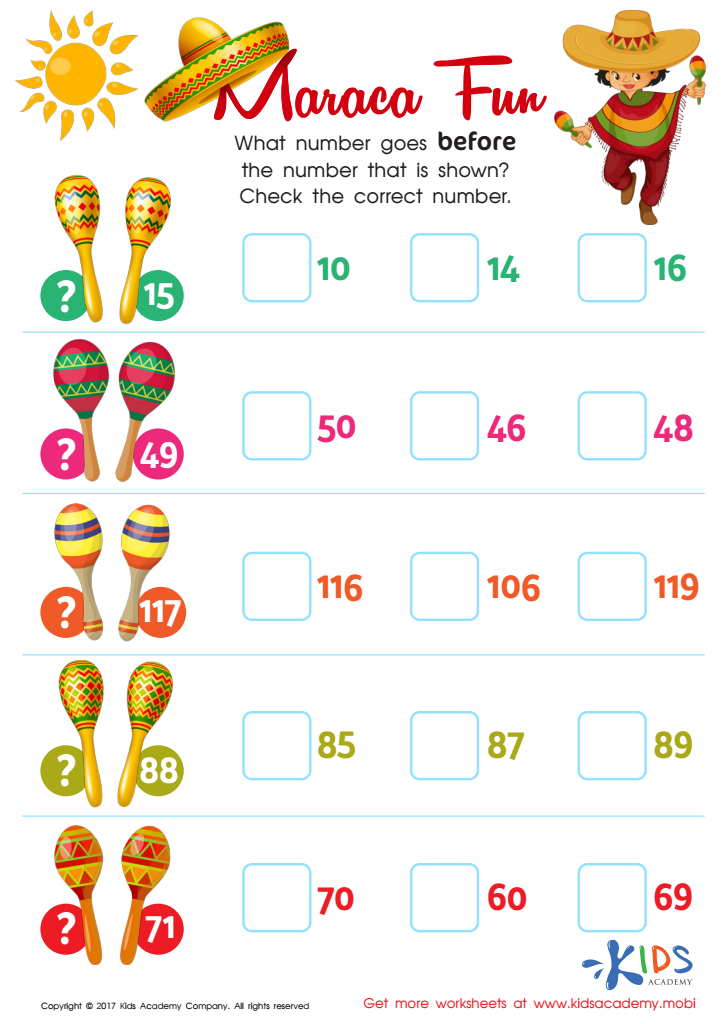

Counting: Maraca Fun Worksheet
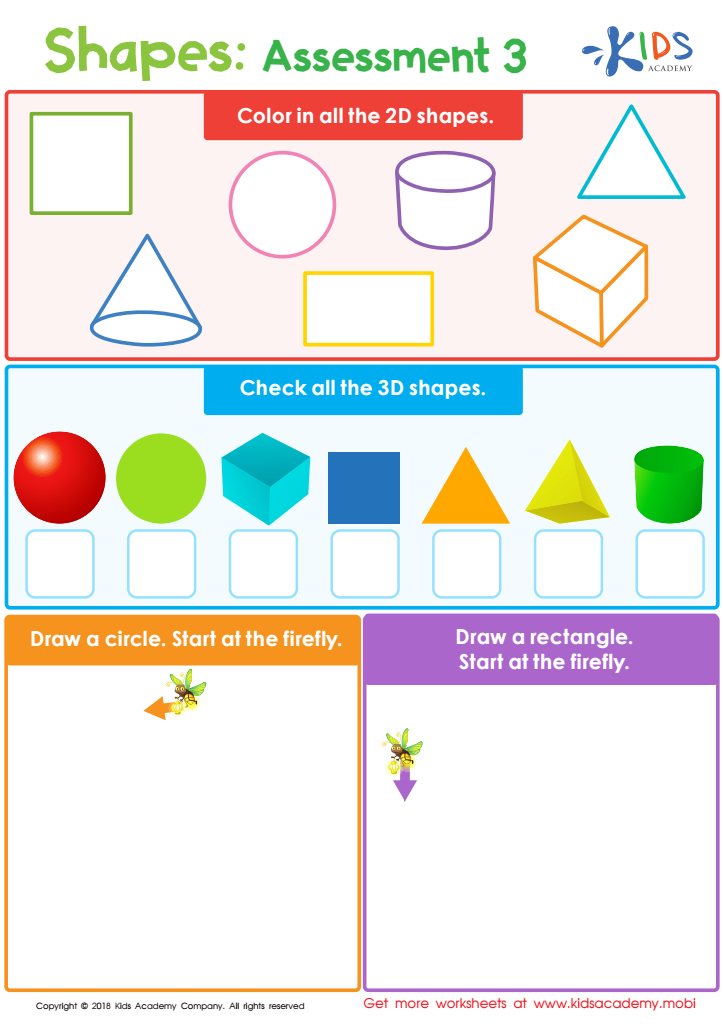

Shapes: Assessment 3 Worksheet
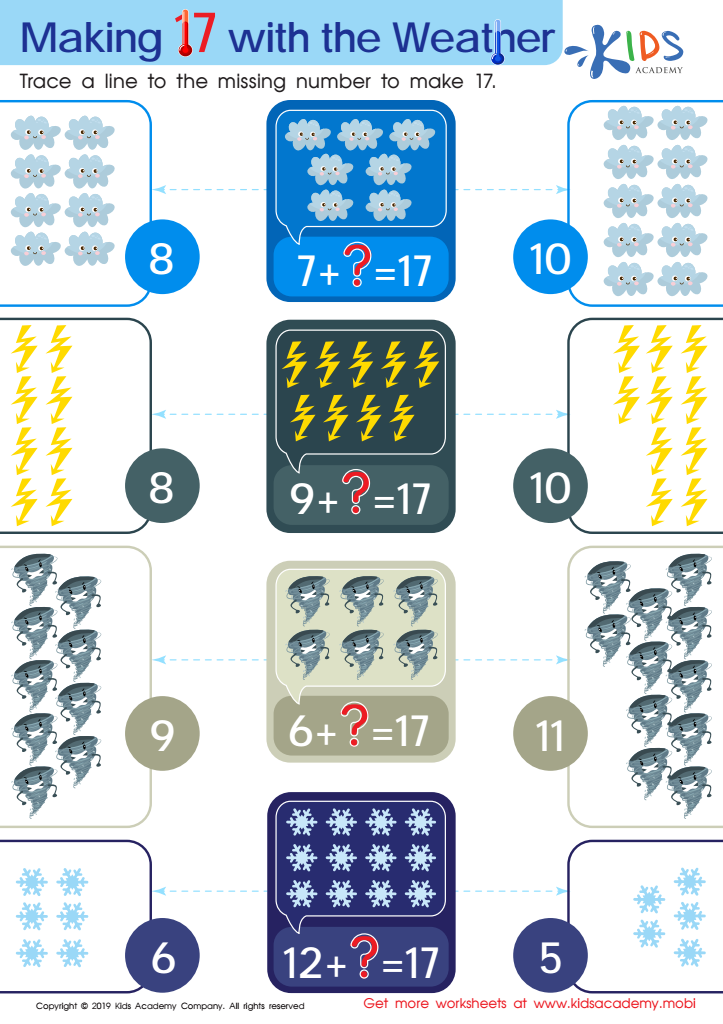

Making 17 with the Weather Worksheet
Parents and teachers should prioritize improving counting skills in children aged 4-5, as these foundational mathematical competencies are crucial for a child's overall cognitive development. During this developmental stage, children are naturally curious and eager to explore numbers and their significance in everyday life. Engaging them in counting activities fosters not only numerical understanding but also helps enhance their problem-solving abilities and analytical thinking.
Counting skills help children grasp the concept of quantity and develop an understanding of basic mathematical operations, such as addition and subtraction. Early proficiency in counting can encourage self-esteem and confidence, leading to a more positive attitude towards math as they progress in their education. Furthermore, these skills often extend beyond mathematics; counting can aid in language development, reinforce memory, and promote sequential thinking.
Involving children in fun, interactive counting practices, such as counting objects during play or reading books with rhythmic counting elements, can make the learning process enjoyable. By fostering a strong foundation in counting, parents and teachers equip children with the tools they need for future academic success and establish a lifelong appreciation for learning in mathematics. This early investment pays off as children advance in their educational journey, laying the groundwork for more complex mathematical concepts.
 Assign to My Students
Assign to My Students

